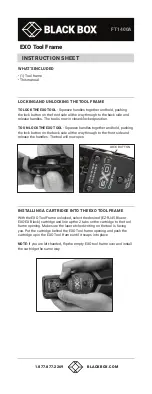
Hydraulic Disc Brake
(for Downhill / Freeride)
IMPORTANT NOTICE
•
Contact the place of purchase or a distributor for information on installation,
adjustment, and replacement of the products which are not found in the user's
manual. A dealer's manual for professional and experienced bicycle mechanics is
available on our website (https://si.shimano.com).
For safety, be sure to read this “user's manual” thoroughly
before use, follow it for correct use, and store it so that it
can be referenced at any time.
The following instructions must be observed at all times in order to prevent
personal injury and physical damage to equipment and surroundings. The
instructions are classified according to the degree of danger or damage which may
occur if the product is used incorrectly.
DANGER
Failure to follow the instructions will result in
death or serious injury.
WARNING
Failure to follow the instructions could result in
death or serious injury.
CAUTION
Failure to follow the instructions could cause
personal injury or physical damage to equipment
and surroundings.
Important safety information
WARNING
•
Because each bicycle may handle slightly differently depending on the model, be
sure to learn the proper braking technique (including brake lever pressure and
bicycle control characteristics) and operation of your bicycle. Improper use of your
bicycle's brake system may result in a loss of control or a fall, which could lead to
severe injury.
•
Do not disassemble or modify the product. This may cause the product to not
operate correctly, and you may suddenly fall and be seriously injured.
•
Downhill bicycle riding and freeriding are inherently dangerous activities. It is
strongly recommended that riders wear protective head and body gear and
perform thorough safety checks of their bicycles before riding. Please remember
that you are riding at your own risk and that you have to consider your
experience and your skills very carefully. There is a risk of being involved in an
accident that can result in a serious injury or even death.
•
Riders must become accustomed to the higher performance of this brake before
riding the bicycle.
–
The brake system is designed for downhill bicycle riding and freeriding, and its
braking force is much higher than for other brakes. If you do not familiarize
yourself with the performance level of this brake, you may be involved in an
accident that could result in serious injury or even death. Furthermore, the
settings of the brakes make them unsuitable for riding on city streets. Sudden
brake operations may cause the bicycle to fall forward, which can result in
serious injury or even death.
–
The 203 mm and 180 mm disc brake rotors provide a higher braking force than
the 160 mm disc brake rotors. If you ride the bicycle without becoming
sufficiently familiar with the braking characteristics, braking may cause you to
fall off the bicycle, potentially causing serious injury or a fatal accident.
•
Please use extra caution to keep your fingers away from the
rotating disc brake rotor. The disc brake rotor is sharp
enough to inflict severe injury to your fingers if caught
within the openings of moving rotor.
•
Do not touch the calipers or disc brake rotor while riding or immediately after
dismounting from the bicycle. The calipers and disc brake rotor will become hot
when the brakes are operated, so you may get burned if you touch them.
•
Be careful not to allow any oil or grease to get onto the disc brake rotor and
brake pads. Riding the bicycle with oil or grease on the disc brake rotor and brake
pads may prevent the brakes from operating and result in serious injury due to a
fall or collision.
•
Check the thickness of the brake pads and do not use them if they have a
thickness of 0.5 mm or less. Doing so may prevent the brakes from operating and
result in serious injury.
2 mm
0.5 mm
•
Do not use the disc brake rotor if it is cracked or deformed. The disc brake rotor
may break, and result in serious injury due to a fall. Replace the disc brake rotor
with a new one.
•
Do not use the disc brake rotor if its thickness is 1.5 mm or less. Also do not use it
if the aluminum surface becomes visible. The disc brake rotor may break, and
result in serious injury due to a fall. Replace the disc brake rotor with a new one.
•
Do not continuously apply the brakes. Doing so may cause a sudden increase in
the brake lever stroke, preventing the brakes from operating and resulting in
serious injury.
•
Do not use the brakes with fluid leaking. Doing so may prevent the brakes from
operating and result in serious injury.
•
Do not apply the front brake too strongly. If you do so, the front wheel may lock
and the bicycle may fall forward, and serious injury may result.
•
Because the required braking distance will be longer during wet weather, reduce
your speed and apply the brakes early and gently. You may fall or collide and be
seriously injured.
•
A wet road surface may cause tires to lose traction; therefore, to avoid this,
reduce your speed and apply the brakes early and gently. If the tires lose traction,
you may fall and be seriously injured.
CAUTION
Cautions on SHIMANO genuine mineral oil
•
Use appropriate eye protection when handling, and avoid contact with eyes. In
the event of eye contact, flush with fresh water and seek medical assistance
immediately. Contact with eyes may result in irritation.
•
Use gloves when handling. In the event of skin contact, wash well with soap and
water. Contact with skin may cause a rash and discomfort.
•
Cover nose and mouth with a respirator type mask and use in a well ventilated
area. Inhalation of mineral oil mist or vapors may cause nausea.
•
If mineral oil mist or vapor is inhaled, go to an area with fresh air. Cover up with
a blanket. Stay warm and stable and seek professional medical advice
immediately.
Bed-in period
•
Disc brakes have a bed-in period, and the braking force will gradually increase as
the bed-in period progresses. Make sure that you are aware of any such increases
in braking force when using the brakes during the bed-in period. The same thing
will happen when the brake pads or disc brake rotor are replaced.
Notice
•
To prevent noise and ensure the best performance, perform the bed-in procedure
after replacing the brake pads or disc brake rotor.
•
When the bicycle wheel has been removed, it is recommended that pad spacers
are installed. Do not depress the brake lever while the wheel is removed. If the
brake lever is depressed without the pad spacers installed, the pistons will
protrude further than normal. If that happens, consult a place of purchase.
•
Use soapy water and a dry cloth when cleaning and carrying out maintenance of
the brake system. Do not use commercially available brake cleaners or silencing
agents. Such substances can cause damage to parts such as seals.
•
This product is not warranted against damage resulting from improper use, such
as jumping while riding or if the bicycle falls over, except if such malfunctions are
caused by manufacturing methods.
•
Products are not guaranteed against natural wear and deterioration from normal
use and aging.
•
For maximum performance we highly recommend SHIMANO lubricants and
maintenance products.
Regular inspections before riding the bicycle
Before riding the bicycle, check the following items. If any problems are found,
consult your place of purchase or a distributor.
•
Are there any signs of brake oil leakage?
•
Do the front and rear brakes work correctly?
•
Do the pads have a thickness of 0.5 mm or more?
•
Is the disc brake rotor cracked or deformed?
•
Are the levers securely installed to the handlebar?
•
Are there signs of cracks or peeling on the levers?
•
Are there any abnormal noises?
UM-8VT0A-003
User's Manual




















